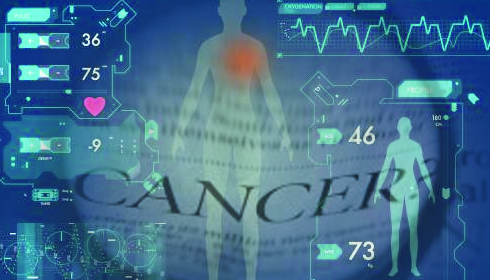
Korean researchers claim developing groundbreaking non-invasive Light-AI technology for early cancer diagnosis
The Korea Institute of Materials Science (KIMS) is spearheading a recent technological innovation that expands the scope of cancer diagnostics by focusing on non-invasive, biofluid-based approaches. Dr. Ho Sang Jung and his colleagues at the Advanced Bio and Healthcare Materials Research Division created sensor materials that magnify cancer metabolite signals in body fluids and analyze them using artificial intelligence (AI). This novel strategy seeks to provide a faster, safer, and more precise alternative to conventional diagnostic methods, including blood tests and biopsies.
This method uses biofluids such as saliva, mucus, and urine to diagnose cancer without intrusive procedures. One of its most significant advancements is colorectal cancer diagnosis. In conjunction with Professor Soo Woong Yoo of Chonnam National University Hospital, the researchers created a plasmonic needle that amplifies chemical signals in colon mucus. Researchers can detect malignant activity by inserting this needle during a colonoscopy and swabbing tumour surfaces without causing tissue damage or bleeding. This approach reduces patient discomfort and associated consequences while allowing for real-time examination of the tumour composition.
Similarly, the researchers cooperated with Professor Byung-Ho Chung of Samsung Medical Centre to create a saliva-based lung cancer diagnosis tool. Lung cancer patients' breath contains volatile organic compounds (VOCs), which dissolve intosaliva and generate unique cancer-related metabolites. The scientists used paper-based sensors to distinguish between lung cancer patients and healthy individuals, as well as to stage the malignancy. AI analysis is critical in this procedure since it identifies essential biomarkers that distinguish between different cancer stages. Also Watch
Nature, specifically dogs' ability to detect cancer-related chemicals in human body fluids, served as inspiration for Dr. Jung's team. The researchers wanted to duplicate this ability with technology by amplifying Raman signals (signals from cancer metabolites) up to 100 million times using plasmonic materials. These enhanced signals enable early detection without the use of complex and costly equipment. The high sensitivity of these materials makes it easier to detect cancer in its early stages, providing a substantial benefit in timely detection.
"The developed technology can expand not only to diagnose cancer but also to diseases with poorly understood diagnostics, such as synaptic diseases," Dr. Jung emphasised the technique's potential. His team aims to enter the global diagnostic industry and push innovation with homegrown technologies.
KIMS' "Top 10 Outstanding Research Achievements of the Year" survey named the team's research as the top effort, garnering widespread praise. Moreover, they have published their work extensively in prestigious scientific journals like Biosensors and Bioelectronics and Sensors and Actuators B-Chemical, and have filed several patents in Korea, the United States, and Europe.
Furthermore, the researchers broadened their cancer detection system beyond colorectal and lung malignancies. Last year, the team created a urine-based diagnostic system and licensed it to SOLUM Healthcare for commercial use. This year, technology has evolved to detect pancreatic, prostate, and lung malignancies with a single urine sample. AI models have enabled quick analysis, with data available in two hours for 100 cases and a clinical sensitivity and specificity of over 98%.
While the study is a significant step forward, issues remain concerning its scalability and accessibility. Though the sensors' non-invasive nature and high sensitivity are promising, their practical applicability, particularly in low-resource situations, warrants additional investigation. Furthermore, the application of AI on a larger scale may raise questions regarding data privacy and algorithmic transparency, despite its role in enhancing diagnostic accuracy.
The LightAI cancer diagnostic technique represents a significant advancement in early detection, researchers say, however they pointed out that to successfully integrate these innovations into mainstream healthcare systems, particularly in underprivileged areas, further research and clinical trials are required.